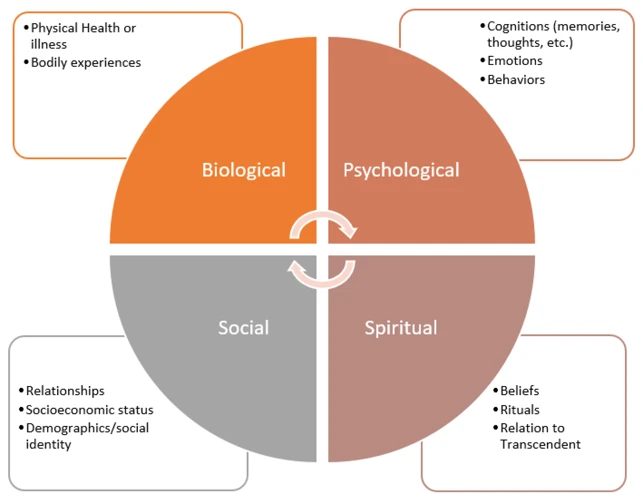As humans, we are constantly in search of a deeper understanding of ourselves and the world around us. Many of us turn to various practices and experiences in hopes of discovering profound insights and healing. One of these practices that has gained popularity in recent years is plant medicine. The idea of consuming plants in order to receive therapeutic benefits may seem perplexing to some, but for others, it can be a powerful and life-changing experience. However, the journey with plant medicine does not end with the experience itself. The true transformation comes through the integration process that follows. In this article, we will explore what plant medicine experiences are, the meaning of integration, and the step-by-step process of integrating a powerful plant medicine experience into daily life.
What is a Plant Medicine Experience?
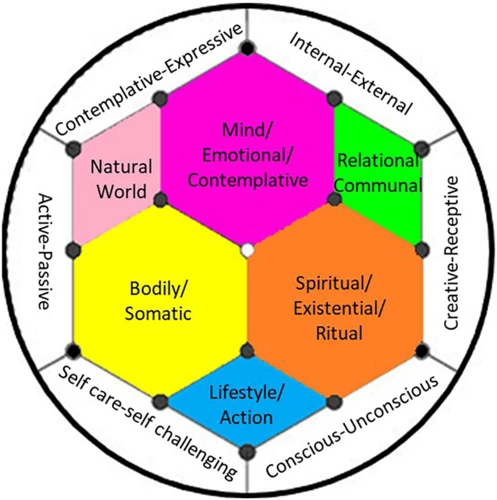
Plants are an essential aspect of human life, from food resources to medicinal properties. However, some plants go beyond basic nutrition and healing and have a profound impact on human consciousness. A plant medicine experience refers to the consumption of these plants for spiritual and psychological exploration. Through this experience, a person can potentially gain insights and understanding about their inner self, their place in the world, and their relation to others. Let’s explore this further with some discussion on the types and benefits of plant medicine.
Types of plant medicine
Plant medicine can refer to a variety of natural substances that are used for healing and spiritual purposes. Here are some examples of different types of plant medicine:
- Ayahuasca: This powerful brew is made from a combination of plants found in the Amazon rainforest. It has been used for centuries in traditional shamanic practices and is known for its ability to induce intense visionary experiences.
- Peyote: This cactus is native to Mexico and parts of the southwestern United States. It contains a psychoactive compound called mescaline, which is known for its hallucinogenic effects.
- Psilocybin: This compound is found in certain species of mushrooms, often referred to as “magic mushrooms.” It can induce feelings of euphoria and alter one’s perception of reality.
- Iboga: This plant is native to Central Africa and contains a powerful psychoactive compound known as ibogaine. It has been used in traditional Bwiti rituals and is known for its ability to induce deep introspection and spiritual experiences.
- San Pedro: This cactus is native to the Andes mountains and contains a psychoactive compound called mescaline, similar to Peyote. It is often used in traditional South American shamanic practices for healing and spiritual purposes.
It is important to note that the use of plant medicine should always be done with caution and under the guidance of a trained facilitator or practitioner.
Benefits of plant medicine
The benefits of plant medicine are numerous and can vary depending on the type of plant and the individual’s experience with it. Here are some of the most commonly reported benefits:
- Physical Healing: Many plants have medicinal properties that can aid in physical healing. For example, ayahuasca has been used for centuries in the Amazonian region to treat various ailments including digestive issues and skin conditions.
- Mental and Emotional Healing: Plant medicine has been known to help individuals work through deep-seated emotional and psychological issues. Psilocybin, found in certain mushrooms, has been shown to have therapeutic effects in treating anxiety, depression, and addiction.
- Spiritual Experiences: Plant medicine can induce profound spiritual experiences and connect individuals to a higher power. It can also foster a deeper appreciation for nature and the interconnectedness of all things.
- Expanded Consciousness: Some individuals report increased creativity, improved problem-solving abilities, and a heightened sense of perception after a plant medicine experience. This can lead to greater self-awareness and personal growth.
- Connection to Community: Many plant medicine ceremonies are often done in a group setting and can lead to a feeling of belonging and connection to others who have shared similar experiences. This can be especially beneficial for those who feel isolated or disconnected from their community.
It is important to note, however, that the benefits of plant medicine are not guaranteed and can vary greatly depending on the individual and their experience. Additionally, it is crucial to approach plant medicine with respect and caution, and to only participate in ceremonies that are facilitated by experienced practitioners in a safe and supportive environment.
What is Integration?
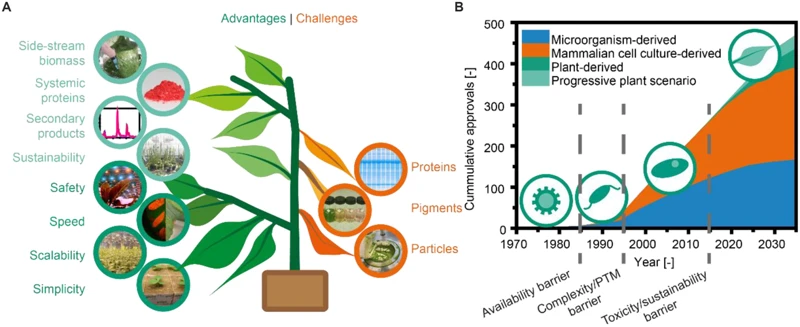
After experiencing a powerful plant medicine journey, many individuals may feel overwhelmed and unsure of how to move forward. The integration process is the key to translating the insights gained during a plant medicine experience into daily life. Integration is the process of taking the lessons learned from the experience and applying them to one’s daily routine. It’s a time of reflection, introspection, and personal growth. Through proper integration, one can unlock the full potential of plant medicine and transform their life in meaningful ways.
Meaning of integration
Integration refers to the process of incorporating the insights gained during a plant medicine experience into one’s daily life. It involves taking the time to understand and apply the lessons learned in a mindful and intentional manner. Some important aspects of the meaning of integration include:
- Reflection: Integration involves reflecting on the experience and the lessons learned. This includes introspection and exploration of one’s thoughts and feelings.
- Action: Integration involves taking action based on the insights gained during the plant medicine experience. This can include changes in behavior, habits, and mindset.
- Integration Plan: It is important to create an integration plan to help guide the process. This plan should include specific actions to be taken and goals to be achieved.
- Patience: True integration takes time and cannot be rushed. It is important to be patient with oneself and the process.
The meaning of integration is about consciously and deliberately incorporating the lessons learned during a plant medicine experience into one’s daily life in a meaningful way. It requires self-reflection, action, planning, and patience.
Why is integration important?
Integration is a crucial step in the plant medicine journey, yet it’s often overlooked. It is the process of fully embodying and integrating the insights, emotions, and experiences gained during a plant medicine session into our daily lives. Failure to integrate can result in a feeling of disconnection and confusion, which can lead to long-term consequences.
The following table highlights the reasons why integration is important:
| Reasons why integration is important | Description |
| 1. Consolidating the experience | Integration allows us to consolidate the plant medicine experience, making it a part of our lives and embedding its lessons, insights, and emotions into our identity and behavior. |
| 2. Creating lasting change | Integrating the plant medicine experience empowers us to create lasting change in our thoughts, habits, behaviors, and relationships. |
| 3. Avoiding spiritual bypassing | Integration helps us avoid spiritual bypassing, which is escaping from or avoiding dealing with unresolved psychological wounds or unresolved issues that might surface during a plant medicine session. |
| 4. Addressing the shadow self | Integration provides an opportunity to address the shadow self—those parts of ourselves that we may have repressed or denied—and to unburden ourselves of the emotional baggage accumulated over our lifetime. |
| 5. Improving mental health | Integration can improve mental health, increase cognitive flexibility, and enhance emotional regulation, leading to a greater sense of well-being and fulfillment. |
| 6. Promoting personal growth | Integrating the plant medicine experience can promote personal growth, broaden our perspective, and deepen our understanding of ourselves and others. |
Incorporating these benefits into one’s life through integration takes effort and dedication, but the long-term benefits are invaluable. By addressing the challenges through intentional integration, individuals can begin to transform their lives and build a deeper connection with the world around them.
The Integration Process
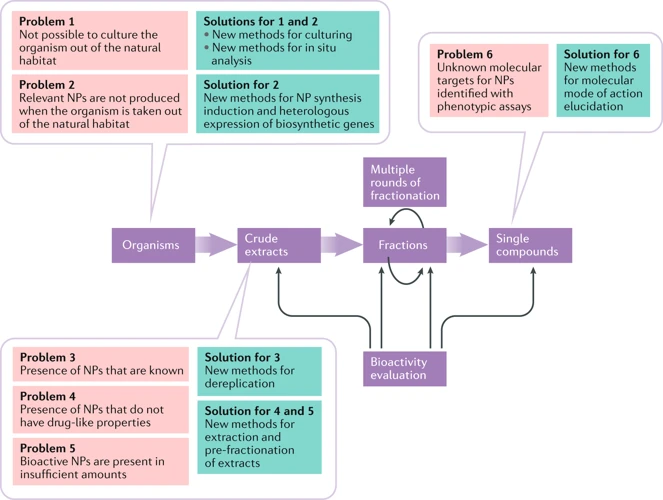
After a powerful plant medicine experience, the integration process is a crucial next step for individuals seeking to integrate the insights and transformative experiences from their journey into their daily lives. Integration might seem like an overwhelming and ambiguous endeavor, but it is a critical process to help fully embody and integrate the teachings received during the plant medicine ceremony. This phase involves specific aftercare techniques that allow one to ensure that the learnings from the experience are sustained for a long-lasting impact. In this section, we will explore various integration techniques and highlight their significance in this transformational process.
Integration techniques
The integration process after a powerful plant medicine experience is crucial in order to fully benefit from the insights gained during the journey. There are several integration techniques that can be utilized to help integrate these experiences into daily life.
One integration technique is mindfulness meditation. Practicing mindfulness can help individuals stay present and aware of their thoughts and emotions, which can be particularly helpful during the integration process. Additionally, engaging in regular meditation practice can help individuals maintain a sense of peace and clarity in their daily life.
Another integration technique is yoga. By incorporating physical movement with conscious breathing, yoga can help individuals release tension and stress, while also promoting a sense of calm and centeredness. This can be particularly helpful during the integration process, as individuals may experience difficult emotions or feelings of overwhelm.
Journaling is another effective integration technique. Writing about the experience can help individuals process and make sense of their thoughts and emotions. Journaling can also help individuals identify patterns or themes that emerged during the experience, which can provide insight into the deeper meaning of the journey.
Creative expression, such as art or music, can also be an effective integration technique. Engaging in creative activities can help individuals access their innermost thoughts and feelings, and can also be a cathartic way to express emotions that may be difficult to articulate verbally.
Finally, seeking professional support through therapy or counseling is another effective integration technique. A trained therapist can help individuals navigate the complexities of the integration process, providing guidance and support as they navigate difficult emotions or experiences. Therapy can also be an effective way to address any underlying mental health concerns that may have been highlighted during the plant medicine experience.
By utilizing these integration techniques, individuals can help ensure that their powerful plant medicine experiences are fully integrated into their daily life, allowing them to continue to grow, heal, and evolve.
How to integrate into daily life
When it comes to integrating a powerful plant medicine experience into your daily life, there are several techniques you can use to ensure a smooth transition. Here are some tips for effective integration:
| 1. Take time for self-care | Integrating a plant medicine experience can be emotionally and physically draining. It’s important to prioritize self-care, such as getting enough sleep, eating healthy foods, and engaging in relaxing activities like yoga or meditation. |
| 2. Set intentions | As you integrate your experience, set clear intentions for what you want to achieve in your daily life. This could be as simple as practicing gratitude each day or working towards a specific goal. |
| 3. Connect with nature | Many plant medicines have a deep connection to nature, and integrating your experience can be enhanced by spending time outdoors. Go for a walk in the park or take a hike to connect with the natural world. |
| 4. Continue spiritual practices | If your plant medicine experience had a spiritual element, it’s important to continue practicing your spiritual rituals as part of your integration process. This could include meditation, prayer, or connecting with a community of like-minded individuals. |
| 5. Seek support | Don’t be afraid to seek support from friends, family, or a therapist as you integrate your plant medicine experience into your daily life. Having a support system can be crucial in navigating any challenges or emotions that may arise. |
By following these integration techniques, you can ensure that the insights and lessons gained from your plant medicine experience are fully incorporated into your daily life. The integration process can take time, but with patience, self-care, and intention-setting, it can be a transformative and rewarding experience.
Importance of reflection and journaling
Reflection and journaling are essential aspects of the integration process after a plant medicine experience. Taking the time to review your experience and document your thoughts and feelings can provide valuable insights and emotional healing.
| Why reflection and journaling is important: |
|---|
| 1. Self-awareness: Reflecting on your experiences and journaling can help you understand yourself better, including your emotions, beliefs, and values. |
| 2. Clarity: Writing down your thoughts can help organize them more clearly and provide clarity surrounding any confusion or uncertainty. |
| 3. Healing: Journaling can be therapeutic, providing an outlet for processing difficult emotions and experiences, leading to emotional healing. |
| 4. Progress tracking: Keeping a journal can help track progress over time, highlighting how you’ve grown and changed as a result of your plant medicine experience. |
Journaling can also help you identify patterns or recurring themes throughout your experiences. These patterns can provide deeper insight into your life and subconscious, aiding in the integration process.
Reflection and journaling are powerful tools for aiding in the integration process. They can facilitate self-awareness, healing, and progress tracking. Taking the time to reflect and document your experiences can be incredibly beneficial, providing a space for personal growth and emotional healing.
Challenges in the Integration Process
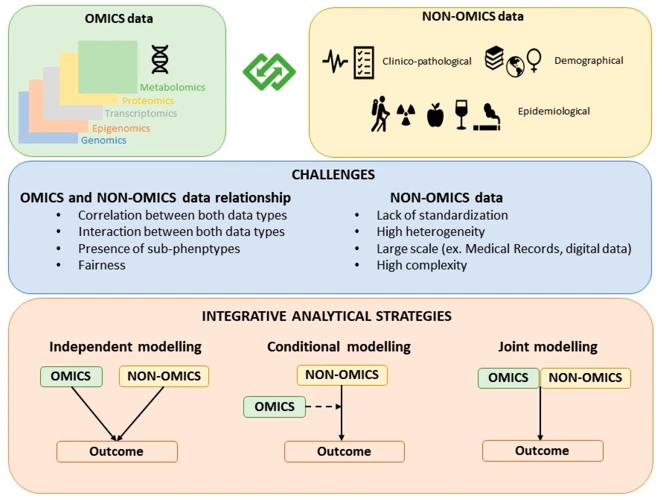
As with any transformative experience, the integration process of a powerful plant medicine journey can be challenging and complex. Navigating the emotional, mental, and spiritual aftermath of entering into a different state of consciousness can be perplexing, particularly when facing social stigmas and misconceptions. This portion of the article will delve into some of the common obstacles and difficulties one might encounter during their integration process and explore methods to overcome these challenges.
Social stigma and misconceptions
One of the biggest challenges in the integration process after a powerful plant medicine experience is the social stigma and misconceptions that surround these types of experiences. Many people still view plant medicine as a recreational drug, rather than a therapeutic tool.
This misconception can lead to feelings of shame and embarrassment, which can prevent individuals from seeking support and talking openly about their experience. Additionally, some people may view plant medicine as being illegal or unsafe, further adding to the stigma.
However, it’s important to remember that plant medicine has been used for thousands of years in traditional healing practices and has been shown to have numerous therapeutic benefits. It’s no different than seeking therapy or taking medication for a mental health condition.
To overcome social stigma and misconceptions, it’s important to find a community or support group that is accepting and understanding of plant medicine experiences. This can provide a safe space for individuals to share their experiences and receive the support they need.
It’s also important to educate oneself and others about the benefits and safe use of plant medicine. This can help break down the misconceptions and stigma and promote a better understanding of these powerful tools for healing.
Misconception | Truth
— | —
Plant medicine is a recreational drug | Plant medicine has been used for thousands of years in traditional healing practices and has numerous therapeutic benefits
Plant medicine is illegal and unsafe | The use of plant medicine is legal in some areas and has been shown to be safe when used responsibly
Plant medicine experiences should be kept private | Seeking support and sharing experiences can be important for the integration process and overall healing journey
Only people with mental health conditions use plant medicine | Plant medicine can be used for a variety of reasons, including personal growth, spiritual development, and creativity.
Overcoming difficult emotions
When it comes to integrating a powerful plant medicine experience, difficult emotions are bound to arise. It is important to acknowledge and work through these emotions in a healthy way.
Some common difficult emotions include:
| Emotion | How to overcome |
|---|---|
| Fear | Seek support from a trusted friend or therapist. Practice mindfulness and meditation to reduce anxiety. |
| Shame | Practice self-compassion and forgiveness. Write down positive self-affirmations and repeat them daily. |
| Guilt | Apologize to those you have wronged and make amends where possible. Consider seeking therapy to work through underlying issues. |
| Anger | Practice deep breathing and other relaxation techniques. Seek therapy to address underlying issues and learn healthy coping mechanisms for dealing with anger. |
It is important to remember:
– Difficult emotions are a normal part of the healing process.
– It is okay to seek support from others, including therapy or support groups.
– Practicing self-care and self-compassion is crucial in working through difficult emotions.
– It is important to take the time and space necessary for your own healing journey.
Dealing with expectations and disappointment
During the integration process, it is common to have expectations about how one’s life will change after a powerful plant medicine experience. However, it is important to remember that everyone’s journey is unique, and there is no guarantee that the experience will have a specific outcome. Thus, one of the challenges in the integration process is dealing with expectations and disappointment when the reality of the post-experience life does not match one’s preconceptions.
To cope with expectations and disappointment, individuals should first acknowledge and accept their feelings. This can involve talking to a trusted friend or therapist, and reflecting on why the expectations were held in the first place. Additionally, it is important to practice compassion towards oneself and recognize that growth is not always linear.
One technique for dealing with disappointment is to reframe the experience in a positive light. This can involve identifying the lessons learned from the experience and acknowledging the progress made, even if it is not as much as was hoped for. Another technique is to focus on the present moment and practice mindfulness. This can help reorient oneself towards the present and reduce rumination on past expectations.
It is also important to be patient with the integration process. Healing and growth takes time, and setbacks or disappointment are natural parts of the journey. Rather than trying to force specific outcomes, individuals should focus on the present and take small steps towards their goals.
Finally, seeking support from others can help alleviate the emotional burden of dealing with expectations and disappointment. This can involve talking to a therapist, joining a support group, or finding a trusted friend who has gone through a similar experience.
By taking these steps, individuals can holistically address the challenges of dealing with expectations and disappointment during the integration process, and move towards living a more fulfilling and integrated life.
Support for Integration
After a powerful plant medicine experience, integrating the insights and transformations into everyday life can be a challenging process. However, with the right support in place, it can also be a deeply enriching and rewarding journey. In this section, we will explore the various forms of support available to individuals seeking to integrate their plant medicine experiences, from working with integration coaches to finding community support and utilizing therapeutic techniques.
Integration coaches
One helpful resource for those looking to integrate after a plant medicine experience is an integration coach. Integration coaches are individuals who have experience with plant medicine themselves and have undergone specific training to help others navigate the integration process.
These coaches can provide a wide range of support, from helping to identify and process difficult emotions that may arise during integration, to offering guidance for how to integrate the experience into daily life in a meaningful way. They can also serve as a sounding board for individuals who may feel isolated or misunderstood in their post-plant medicine journey.
Working with an integration coach can provide a sense of structure and accountability, as well as a safe and non-judgmental space for dialogue and exploration. They may use various techniques such as breathwork, meditation, and somatic practices to support individuals in their integration process.
It is important to note that not all coaches may be a good fit for all individuals. It may take time to find someone who resonates with your personal goals and values. It is also important to take precautionary measures such as checking credentials and licenses, as well as reviewing past client feedback.
Integration coaches can be a valuable asset in the integration process for those seeking guidance, support, and a deeper understanding of their plant medicine experience.
| Integration Coaches |
| Individuals experienced with plant medicine and specific training to assist with integration. |
| Offer emotional support, guidance, and accountability during the integration process. |
| May use techniques such as breathwork, meditation, and somatic practices. |
| Not all coaches may be a good fit for all individuals, precautionary measures should be taken before choosing a coach. |
Community support
One important aspect of supporting the integration process after a plant medicine experience is through community support. Being part of a community of individuals who have undergone similar experiences can be incredibly beneficial for anyone looking to integrate the insights and lessons gained during a plant medicine ceremony into their daily lives.
Here are some examples of how community support can aid in the integration process:
- Sharing experiences: Talking with others who have undergone similar experiences can help reduce feelings of isolation and provide a sense of belonging. It can also provide an opportunity to share insights and gain new perspectives on the experience.
- Accountability: Being part of a community with shared goals can help provide the necessary accountability to continue working towards integrating the lessons learned.
- Education: Being part of a community can provide access to resources and information to aid in the integration process. This can include books, workshops, and other educational materials.
- Community events: Attending events such as group meditations, yoga classes, or other activities with like-minded individuals can help reinforce a sense of community and provide additional support during the integration process.
It is important to note that community support can come in many forms, and it may be beneficial to explore different options to find the most suitable community for individual needs. Whether it be through local meetups or online forums, finding a supportive community can greatly aid in the integration process after a plant medicine experience.
Therapeutic techniques
There are various therapeutic techniques that can be used to support the integration process after a powerful plant medicine experience. These techniques can be helpful in processing and making sense of the experience, and in dealing with any challenging emotions that may arise.
Mindfulness meditation is a powerful technique that can be used to help individuals develop a greater sense of awareness about their thoughts, feelings, and bodily sensations. This practice can be helpful in integrating the insights gained during the plant medicine experience and bringing greater clarity and focus to daily life.
Yoga and breathwork are other techniques that can be helpful in anchoring the experience into the body and reinforcing the insights gained during the plant medicine experience. These practices can help individuals to release tension and connect more deeply with their inner selves.
Talk therapy can also be a helpful tool for individuals who are struggling to integrate their experiences. This type of therapy can help individuals to identify and process any challenging emotions or beliefs that may be inhibiting their ability to move forward.
Art therapy can be a valuable tool for individuals who are struggling to find a way to express the complex and powerful emotions that they may be feeling after a plant medicine experience. This type of therapy can help individuals to access and release emotions that may be trapped or bottled up, and can be a powerful tool for healing.
Nature immersion is another therapeutic technique that can be helpful for individuals seeking to integrate a plant medicine experience into their lives. Spending time in nature can be a powerful way for individuals to reconnect with themselves and the earth, and can help to ground and anchor the insights gained during the experience.
There are many therapeutic techniques that can be used to support the integration process after a plant medicine experience. By using these techniques, individuals can gain a greater understanding and awareness of their experiences, and can move forward with greater clarity, focus, and purpose.
Conclusion
In conclusion, integrating a powerful plant medicine experience is a crucial part of the journey towards healing and personal growth. It allows individuals to fully embody the lessons and insights they have gained, and to continue to reap the benefits of these experiences in their daily lives.
Through the integration process, individuals can learn to recognize and work through any challenges that arise, such as social stigma and difficult emotions, and to find support from a variety of sources, including integration coaches, community support, and therapeutic techniques.
Reflection and journaling can be powerful tools in the integration process, providing space for individuals to explore their thoughts and feelings, and to gain a deeper understanding of their experiences. It is important to maintain an open and curious mindset throughout the integration process, allowing for continued growth and discovery.
By embracing integration and making it a priority, individuals can cultivate a greater sense of self-awareness and personal power, creating a deeper connection with themselves and with the world around them.
Overall, the integration process after a plant medicine experience may present challenges, but with dedication, support, and an open heart, it can lead to profound healing, growth, and transformation.
Frequently Asked Questions
What should I expect during a plant medicine experience?
Plant medicine experiences can vary greatly, but typically involve intense altered states of consciousness that may involve spiritual or emotional breakthroughs, physical sensations, and visual hallucinations.
How long does the integration process usually take?
The integration process is an ongoing journey that can last months or even years. Many people find that they continue to integrate insights and lessons from their plant medicine experiences throughout their lives.
Is it safe to use plant medicine?
While plant medicine can be powerful and transformative, it is not without risks. It is important to source your medicine from a reputable provider and to approach its use with respect and caution.
Can plant medicine be addictive?
Plant medicine itself is not addictive, but some people may become psychologically dependent on the experiences or insights it provides. It is important to approach plant medicine use with intention and to seek support if you find yourself struggling with addiction.
How do I prepare for a plant medicine experience?
Preparation is key when it comes to plant medicine. Depending on the medicine, preparation can involve dietary restrictions, abstinence from certain substances, and mental and emotional preparation through meditation, therapy, or other practices.
Can everyone benefit from plant medicine?
Plant medicine can be transformative for many people, but it is not a one-size-fits-all solution. It is important to approach plant medicine with an open mind and realistic expectations, and to be prepared to do the work of integration and self-discovery.
Do I need to seek professional help for integration?
While it is possible to integrate on your own, many people find it helpful to seek support from a therapist or integration coach who can help them process and integrate their experiences in a safe and supportive environment.
What can I do if I am struggling with difficult emotions after a plant medicine experience?
If you are struggling with difficult emotions or symptoms after a plant medicine experience, it is important to seek support. This can include therapy, meditation, bodywork, or other forms of self-care to help you process and integrate your experiences.
What should I do if I experience unexpected physical symptoms during a plant medicine experience?
If you experience unexpected physical symptoms during a plant medicine experience, it is important to seek medical attention if necessary. This can include contacting a medical professional, or seeking emergency medical care if your symptoms are severe.
Is it possible to integrate plant medicine experiences into daily life?
Yes, it is possible to integrate plant medicine experiences into daily life. This can involve incorporating new insights and practices into your routine, such as meditation, mindfulness, and self-care practices.

